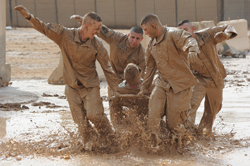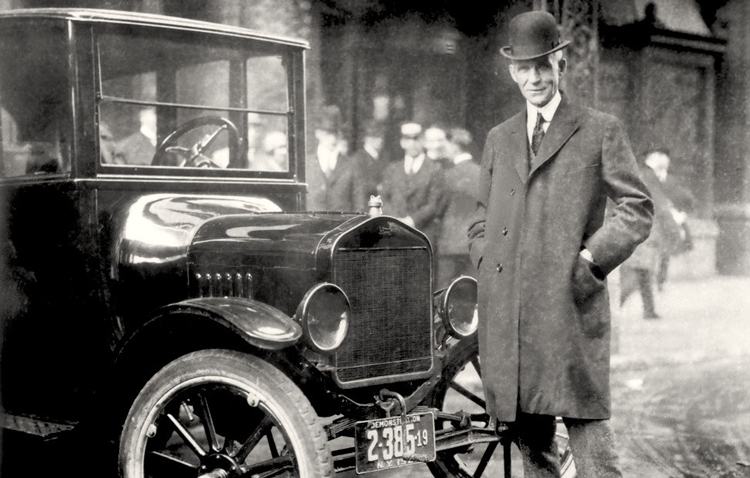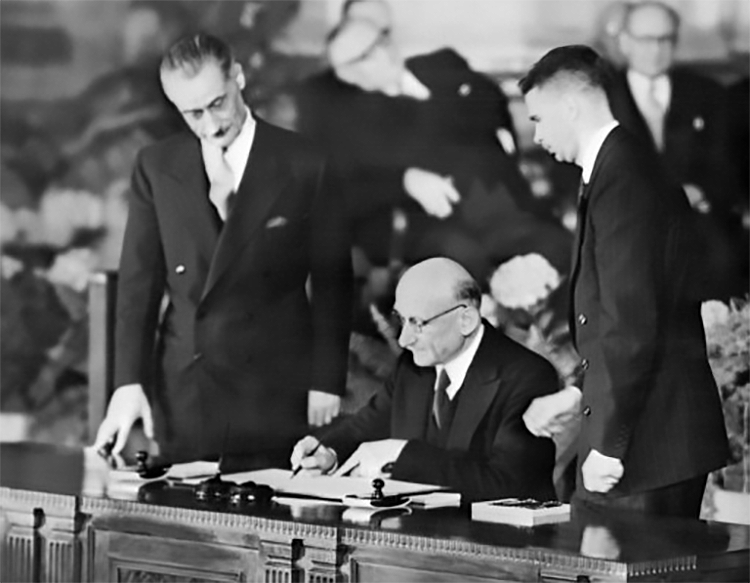Mindfully Kind Workplaces are Increasing Their Bottom Line Through Supporting Kind & Mindful Co-working
Half or more of our waking hours are typically spent at work under the flawed premise that “Working hard, working faster, and doing more with less,” is going to increase a corporation’s bottom line. This psychology is backfiring in epic proportions. Being paid is only one part of the overall formula that explains our motivation for work. When money is seen as the only motivator for a job being completed, (especially when it’s not a living wage), it’s insulting. Multiple positive psychology researchers are now reporting: Focused, meaningful, positive work provides social support for mindfulness, meditation and doing the right thing, is shown to improve productivity as well as job satisfaction. People want to know their work makes a lasting difference and mindful co-working facilitates this. This makes people happy, and their well being has a strong correlation with maximizing their performance. High performance from well being creates more opportunities for everyone. Hence, being a mindfully kind co-worker (and we use this term broadly to include upper management) is the most consistent multiplier to increasing profitability and satisfaction.

Top Rated Social Scientist Adam Grant Breaks Down The Underlying Dynamics Of Coworkers
Adam Grant is a top rated business professor at Wharton, as well as a New York Times writer, and best selling author of Originals and Give And Take. His data-based views on how takers, matchers, sustainable givers, and doormats affect the workplace give us important insights into the inner workings of how organizations thrive or fail. Adam makes a strong case for how dangerous ‘takers’ are in the workplace, and how they can ruin an entire team. This bigger picture view of minimizing ‘takers’ in the workplace is becoming a widespread concept. Adam Grant gives practical ways to interview differently so that ‘takers’ self identify their habits without explicitly admitting to being a taker. Because sometimes, ‘takers’ are unaware or in denial of the true costs of their exploitation.
I’ve spent a good chunk of time in the past year working with organizations on mechanisms for screening out takers. And I think what’s powerful about that is, if you can eliminate takers from your organization, then you have givers and matchers. The givers will act more generously because they don’t have to be paranoid that takers are out to get them.
And the beauty of matchers, which is most people, is that they tend to follow the norm and reciprocate the way that they’ve been treated. So matchers act like givers in the presence of givers. They’re also useful for dealing with—if you have clients, for example, who are takers—matchers will fight fire with fire when they have to.”
If you are more thoughtful about who you help, how you help and when you help, it becomes easier not to get taken advantage of and contribute in ways that are efficient and don’t sacrifice your priorities.Adam Grant, Ph.D.
Takers are persons who try to get others to serve their own ends while carefully guarding their expertise and time.
Motivation For Dedication
Foundational Components For Mindful Co-Working
No one expects us to act with remarkable integrity, diligence or follow through without an intrinsic cause. Here are three components of mindfully kind coworking that can help you tap into intrinsic motivation. This is for the sake of your own joy and having a meaningful journey that trumps all short-lived benefits of being a ‘taker.’ There are always ways mindful kindness can improve your personal perspective, and start a movement within your company (if there isn’t one already in place.)

Peer To Peer Validation
Emphasize The Positive
For eleven years straight, JetBlue has won the highest customer service award from JD Power for small carriers. This success has been traced to their internal ‘Peer-To-Peer’ recognition program. This program allows peers to report exemplary attitudes and actions that they witness which gives the recipients points that they can be redeem for anything from a dinner to a cruise. Because the program is internal, the recognition is given across internal channels so other employees may hear positive news of someone making a difference, which in turn models ideas as inspiration to others. Because the point system allows the employee to choose their reward, the bonus is meaningful and avoids scenarios of accidently giving a vegan a steak dinner. Advocate with your management to develop peer-to-peer recognition programs, or at least offer reciprocal trade for excellent recommendations on LinkedIn (which will support advancing to a better company if need be.)

Group
Cohesion
Caring About Teammates
Researchers have been fascinated by the mythical level of performance that a group with strong social cohesion has pulled off against substantial odds. To break this down, researchers have identified 5 categories from previous studies that seem to point to the top dynamics making up the glue to an effective group:
- Task Commitment: Group members bond over a shared goal that everyone wants to see happen.
- Social Commitment: Group members bond over pre-existing social ties or newly established affinity relationships within the group.
- Belongingness: Group members feel connected, have affinity and respect for each other.
- Group Pride: Group members display a liking for the status, or ideologies represented by the group.
- Group Morale: Group member’s loyalty and willingness to endure frustration for the group.

Meaningful
Work
Build With Gratitude
In 2010, behavioral experts reviewed data to see what patterns exist related to the meaning of work. The research revealed that those who found the most meaning within their work were the most engaged, fulfilled and least stressed. In another study by Gallup in 2013, 30% of the American workforce was found to be actively engaged with their work, while the other 70% was passively or actively disengaged with their work. Disengagement ranged from ‘acting out’ to being ‘checked out’ with the result of half hearted completed tasks that undermined what their co-workers are accomplishing. Enhancing our own meaning of our work, (especially practicing gratitude for every small thing you appreciate about your job), we find more positive meanings, more happiness and better performance. Increased performance can net you the recommendations that will help you get a better position if need be.
Things That Make Work Easy: (It's not always about the $.)
Epic Historical Teamwork Due To Mindful Purpose
The Affordable Car & A Living Wage

Over 20 years before the US Fair Labor Act of 1938 introduced a minimum wage, Henry Ford was mindfully kind of the fact that if he didn’t improve wages, not even his employees would be able to afford the Model T. After brainstorming with his team; Clarence Avery, lead developer of the assembly line, Peter Martin, lead production executive, and Charles Sorenson, head of assembly, in 1914, Ford stunned the world by doubling wages to $5/day (equivalent to add 120/day today) and offered this to employees who had been working at least 6 months and would agree to adhere to social department rules. This meant no heavy drinking, gambling or poor fatherly conduct. This immediately solved his huge turnover problems, and he also attracted the best workers.
Highlights
A Civil Rights Championship

Coach Don Haskins, of the Texas Western Miners, was one of the first NCAA coaches to value African American talent over skin color in the mid 1960’s during the peak of national US desegregation laws going into effect. Facing the top-ranked University of Kentucky in the championship game, Haskins made history by starting five African American players for the first time in a championship game against Kentucky’s all-white squad. Though Kentucky closed to within a point early in the second half, the Miners never relinquished the lead again and finished with 72 points to Kentucky’s 65, winning the 1966 division one title and finishing the year with a 28–1 record.
Highlights
Fresh after WWII when Europe was desperate for rebuilding itself and abolishing war permanently, Prime Minister of France, Robert Schuman, lead French diplomat, Jean Monnet, and Konrad Adenauer, (Chancellor of post-war Germany) launched an ambitious plan: They wanted to put Franco-German coal and steel production under a common high authority (whose decisions would bind France and Germany.) The organization framework would welcome the participation of the other European countries. Beyond increasing economical revenues for all, the agreement also exchanged a history of conflict for a future of friendship. On May, 9 1950, these principles of supranational democracy were announced in the Schuman Declaration. The text was jointly prepared by Paul Reuter, the legal adviser at the Foreign Ministry, his chef-de Cabinet, Bernard Clappier and Jean Monnet and two of his team, Pierre Uri and Etienne Hirsch. What started in May 1950 led to a series of legislation paving the way for the creation of the European Union in 1958.
Highlights
Peace In Europe

Work can hold the meaning of your choosing, and you can actively engage in positive habits that build your sense of value.
Ready For Changes? Being Mindfully Kind Can Permanently Upgrade The Meaning Of Your Work
The following resources represent the backstory of testing mindfully kind habits in maximum security prison, and six years of gathering the best international research towards making these principles accessible.

Saint Badass
Hear the backstory of how Roy, a life sentence serving inmate met Doug, a retired university professor, and started the journey of testing mindful kindness under the severest circumstances. The history of abuse, retaliation and transcendence without physically leaving a maximum security prison is breath taking.
Learn More About The Book

How Love Wins
Kindness is underestimated by many cultures, but mixed with certain qualities, it’s extremely powerful. In the research based work of How Love Wins, Doug Carnine, PhD explains how fusing mindful kindness into everyday living has a profound upgrading effect to all you do and how you feel.
Learn More About The Book
If you’re here, and filling in the blanks of any of the above concepts, you’re a champion.
GET OUR FREE MINDFULLY KIND GUIDE
Join our email list for minimal updates & get a free guide! Fill in the form, verify your email and you’ll be sent a link to download our free guide.

